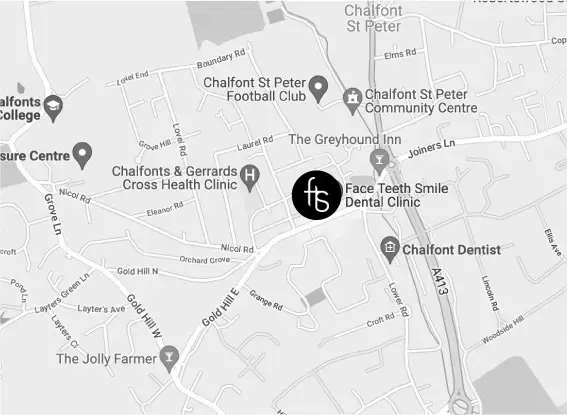General
Debunking 5 Common Myths About Oral Health
It’s time to separate fact from fiction and uncover the truth behind these 5 myths about oral health. Before we delve into the world of dental hygiene, it’s worth explaining why taking care of your oral health is crucial for your overall wellbeing.
Maintaining good oral health goes beyond just having a bright smile. It encompasses a range of practices and habits that contribute to healthy teeth, gums and mouth. From regular dental check-ups to proper brushing and flossing techniques, every aspect of oral care plays a significant role in preventing various dental issues.
Looking after your oral health can prevent tooth decay, gum diseases and other common dental problems. Not only that, if you have poor oral hygiene, you could be putting your overall health at risk of conditions such as heart disease and diabetes.
With all that said, let’s look at the most common myths surrounding oral health.
Myth 1: Brushing Once a Day is Enough
Many people believe that as long as they brush their teeth before bed, they’re good to go. However, this couldn’t be further from the truth.
As dental professionals, we recommend brushing your teeth at least twice a day for optimal oral hygiene. Brushing in the morning helps remove plaque and bacteria that have built up overnight while brushing before bed removes any food particles and plaque accumulated throughout the day.
By only brushing once a day, you’re allowing harmful bacteria to thrive in your mouth for extended periods. This can lead to various dental issues such as cavities, gum disease, and bad breath.
Myth 2: You Don’t Need to Floss If You Brush Regularly
It’s not uncommon to fall into this misconception, thinking that brushing alone is enough to maintain good oral health.
Dental flossing plays a crucial role in maintaining optimal oral hygiene. While brushing helps remove plaque and food particles from the surfaces of your teeth, it doesn’t effectively reach the tight spaces between them. This is where flossing comes in.
Flossing allows you to clean between your teeth and along the gumline, areas that are prone to plaque buildup and bacteria growth. By removing these hidden debris, flossing helps prevent tooth decay, gum disease, and bad breath.
Myth 3: Sugar-Free Products Are Safe for Teeth
Many people believe that consuming sugar-free foods and drinks is completely safe for teeth, assuming that the absence of sugar means no harm to dental health. However, this is not entirely true.
While it’s true that sugar substitutes are used in many sugar-free products, these alternatives can still have dental effects. Sugar-free foods and drinks often contain acidic ingredients or artificial sweeteners, which can be harmful to tooth enamel over time.
Acidic ingredients in these products can erode tooth enamel, leading to tooth sensitivity and an increased risk of cavities. Some artificial sweeteners can also alter the mouth’s pH balance, creating an environment that promotes bacterial growth and plaque formation.
It’s important to remember that maintaining good oral hygiene practices such as regular brushing, flossing, and visiting the dentist is crucial regardless of whether you consume sugary or sugar-free products.
Myth 4: Baby Teeth Don’t Matter as Much as Permanent Teeth
When it comes to children’s oral health – the belief that baby teeth don’t matter as much as permanent teeth is another common myth. This misconception can lead to neglecting proper care for primary teeth, which can have long-term consequences.
Baby teeth play a crucial role in a child’s overall oral health and development. They serve as placeholders for permanent teeth, guiding them into their proper positions. Neglecting baby teeth can result in misalignment or crowding issues later on.
Healthy primary teeth are essential for proper chewing and digestion, speech development, and self-esteem. They enable children to eat a balanced diet and communicate effectively.
It is important to address this myth and emphasise the significance of maintaining good oral hygiene practices from an early age. Regular brushing, flossing, and dental check-ups are vital for ensuring the health of both baby and permanent teeth.
Myth 5: Mouthwash Can Replace Brushing and Flossing
While mouthwash does have its benefits, such as freshening breath and killing bacteria in the mouth, it cannot replace the mechanical action of brushing and flossing. Brushing removes plaque and food particles from the surfaces of teeth, while flossing reaches areas between teeth where a toothbrush can’t reach.
Mouthwash can be a useful addition to your oral care routine, but it should never be seen as a substitute for proper brushing and flossing. To maintain optimal oral health, it’s important to continue practising these essential habits alongside using mouthwash.
So next time you reach for that bottle of mouth rinse, remember that while it can provide some benefits, it’s no replacement for the tried-and-true combination of brushing and flossing.
Look After Your Oral Health
Armed with this accurate information you can now take proactive steps towards maintaining optimal dental hygiene. Regular brushing, flossing, and using mouthwash as recommended by dentists along with regular check-ups will contribute significantly to overall oral wellbeing.

